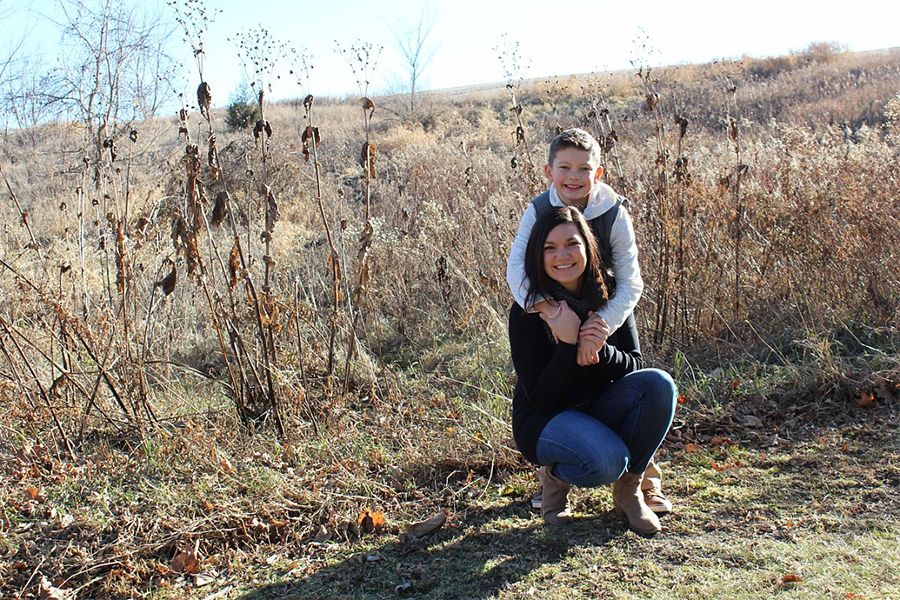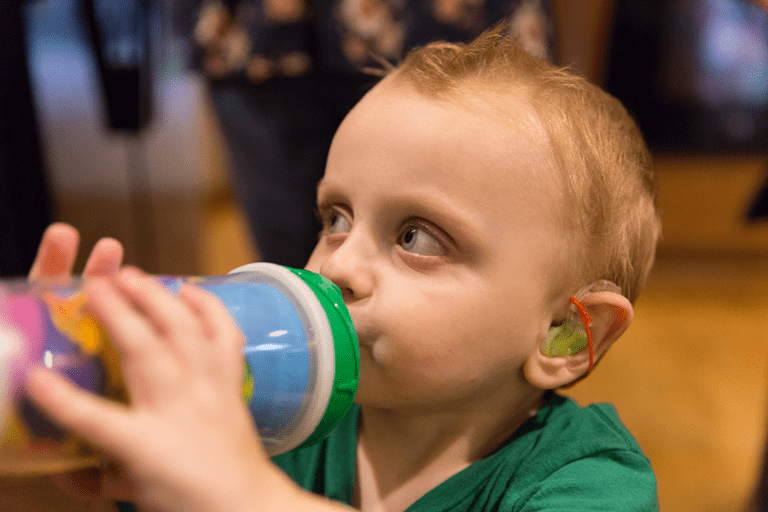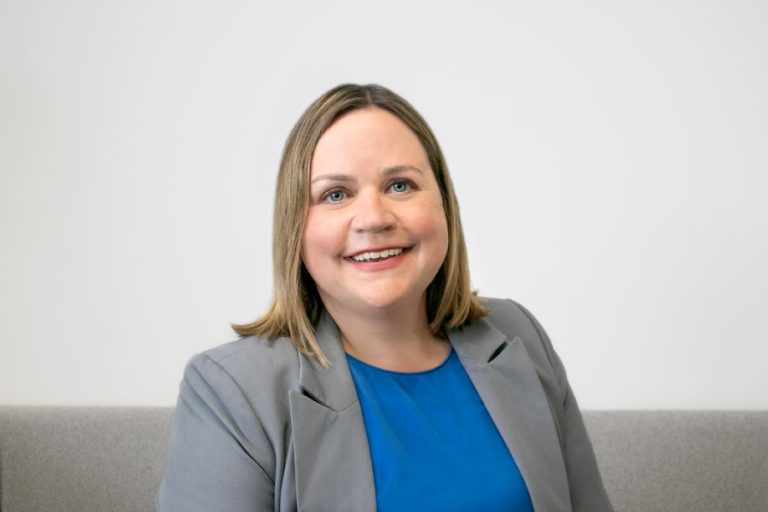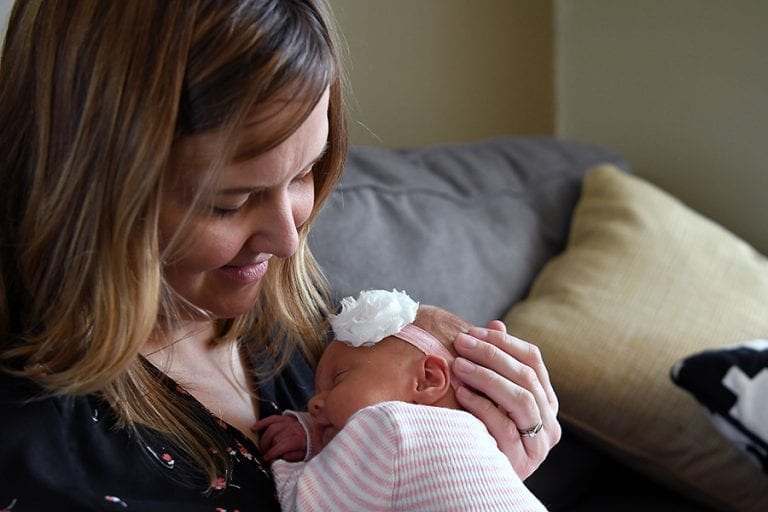While Melissa’s friends were enjoying high school, going to football games and touring colleges, Melissa was fighting not one, but two types of cancer. At the age of 17, Melissa was diagnosed with composite lymphoma, meaning she had both non-Hodgkin and Hodgkin lymphoma. She was the only female pediatric patient her doctors had ever seen with this diagnosis.
Melissa, now healthy and more than 20 years past her diagnosis date, loves spending time with her 10 year old son, Logan, and working at Gillette Children’s Specialty Healthcare as a physical therapist and practice manager in the patient access department. We recently asked Melissa to tell us a little more about her cancer journey and about the impact of donors who are supporting better treatments for kids diagnosed today.
How did you first know something wasn’t quite right?
I went in to the doctor because I had a lump on the right side of my neck, which they thought initially was just mono. They said if anything changes within a week, to let them know – and within a week I developed more lumps on the left side of my neck. They biopsied the right side of my neck and still thought it was mono. They sent the biopsy to the Mayo Clinic where the first diagnosis was made of Hodgkin lymphoma. I was then admitted to the University of MN Fairview where they took a biopsy from the left side of my neck. This revealed non-Hodgkin lymphoma. The diagnosis of composite lymphoma was then made, meaning I had non-Hodgkin and Hodgkin lymphoma at the same time.
High school is a critical time for a lot of teenagers – what was your treatment like, and how did it impact you at that time?
I went through eight months of chemotherapy and one month of radiation as a junior and senior in high school. As a 17 year old, all my friends were going to look at colleges, and I missed out on a lot of that. I had to grow up fast. Some of my friends stopped calling and asking me to hang out, because they assumed I wouldn’t be able to. For anyone who has a friend with cancer, keep calling! They might not always be able to do the things they used to while they’re in treatment, but they don’t want to feel left out or forgotten. Just the fact that you asked can help them feel a little better, and you never know, they might feel up to hanging out.
Once you were finished with treatment, your doctor told you that you may not be able to have children as a result of your chemo. How did you react to that news?
It was hard to know how to process at the time. My doctor told me that there was no way for me to know whether or not I’d be able to have children until I was ready to start a family. I was a teenager at the time so I certainly wasn’t ready then, but having a family someday had always been really important to me, so it was hard news to digest.
Tell us about how you felt when you found out you were going to have Logan.
I was really nervous at first, because I had a missed pregnancy before Logan, and I worried that was a result of the chemo. But with Logan, once we got past that 12-week stage and I was able to hear his heartbeat, I was confident that everything was going to be fine.
Do you ever talk to families who are going through a cancer diagnosis now? What do you say to them?
I do, I talked to a family a while ago who had a child with the same diagnosis as me. I was able to share a lot of things with them that I wish someone had told my family. This girl had younger siblings, and I remember how tough it was for my sister when I was going through treatment, so I talked to them about making sure their other children are doing okay, too. I just tell people to try really hard to think positively and appreciate each day, since you never know what the next day can bring.
Where have donors to CCRF made the biggest difference in your life?
I’d like to specifically thank donors for their support of survivorship programs and clinics. One of my chemo drugs caused damage to my heart, so being able to check in with the survivorship clinic to make sure there haven’t been any changes is really essential. It’s great to have those resources there to support survivors, even ones like me who are 20 years out.
What gives you hope about the future of cancer research? What do you hope research can do for kids in the future that it wasn’t able to do for you when you were treated 20 years ago?
It gives me hope to look at all the different medical advancements we’ve made since I was being treated. So many kids don’t have to even do chemo anymore, or they take their chemo as pills, or they can use their own cells an immune system to fight their cancer. Better treatments can decrease hospital stays – I remember some of my treatments kept me in the hospital for 7 days straight. Keeping kids out of the hospital and giving them treatments they can do at home lets them be with their family and friends and improves their quality of life. That would have made a big difference for me, so seeing that be available for kids now gives me a lot of hope.
Support Research for Survivors Like Melissa
Many childhood cancer survivors rely on survivorship clinics in order to make sure their cancer stays away and address the late-effects of their cancer treatment. Your donation supports the researchers who make these clinics possible for survivors like Melissa.




